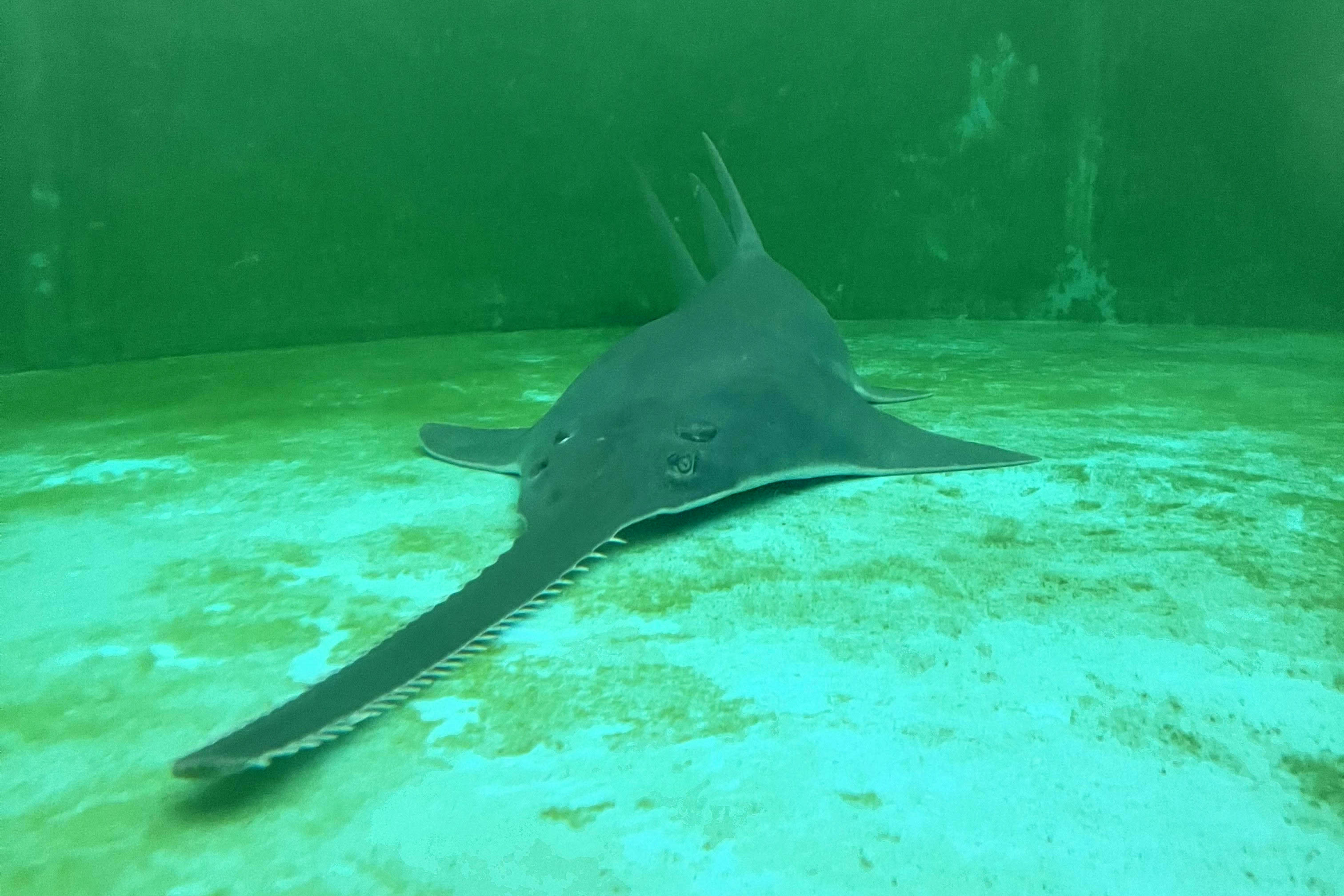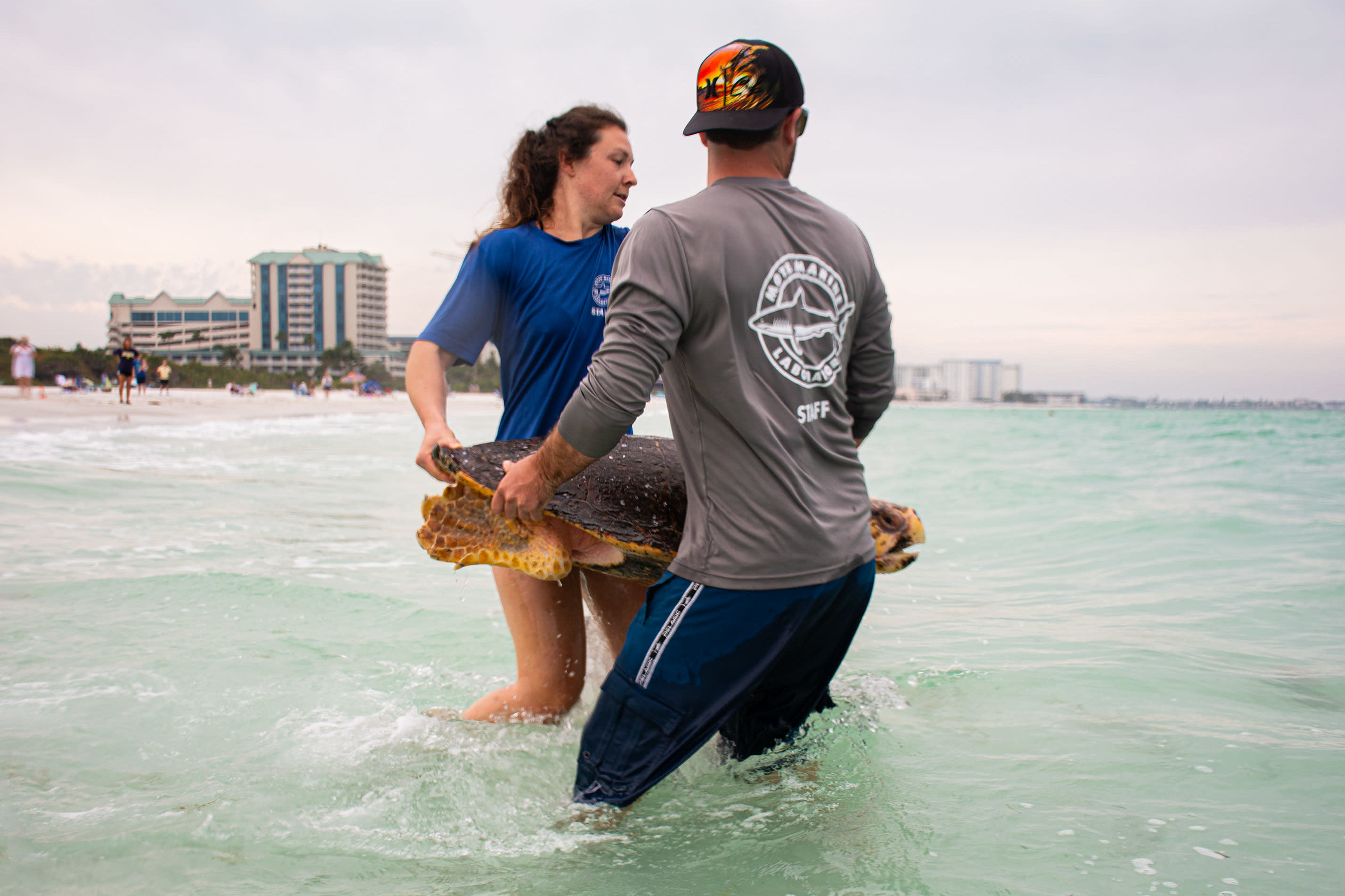Erinn Muller is in a Race to Save Florida’s—and the World’s—Coral

Erinn Muller
Image: Barbara Banks
For the last four years, Florida’s coral reef tract, which extends 360 miles down the seaward side of the Florida Keys, has been under attack by a mystery disease that is threatening the survival of what is the world’s third-largest living coral reef.
Erin Muller, the first science director of Mote Marine Laboratory’s Coral Reef Research & Restoration Center, is on the front line, examining how climate change may be encouraging bacterial and viral infections.
“We’re losing corals at an unprecedented rate,” says Muller, explaining that as seawater becomes warmer, corals become “bleached,” which makes them more vulnerable to disease. “My program studies when, where and why corals get sick, and then we also try to figure out why certain corals are resistant.”
After earning her Ph.D. from Melbourne’s Florida Institute of Technology in 2011, Muller—one of a small percentage of women to get an advanced marine science degree—won a prestigious postdoctoral fellowship at Mote that gave her two years to build her own coral research program. Muller now heads up a team of biologists and other scientists who are monitoring and restoring reefs through a groundbreaking method that raises coral from embryos in the lab and transplants them onto reefs. This year, Muller and her team are transplanting 25,000 of these nursery-raised corals.
The program is based in a 19,000-square-foot facility on Summerland Key, which opened last year and includes a molecular lab, a microbiological lab, an ocean acidification lab and indoor wet labs that are drawing scientists from around the world. Muller encourages the cross-pollination of ideas and sees hope in the research that is occurring in the labs.
“It’s exciting,” she says. “We can accelerate what each of us is doing.”



